How to Enable WhatsApp Auto-Reply for Faster Customer Communication
In today’s fast-paced digital world, people seek instant answers. Whether it's a question, support request or product query...
Learn more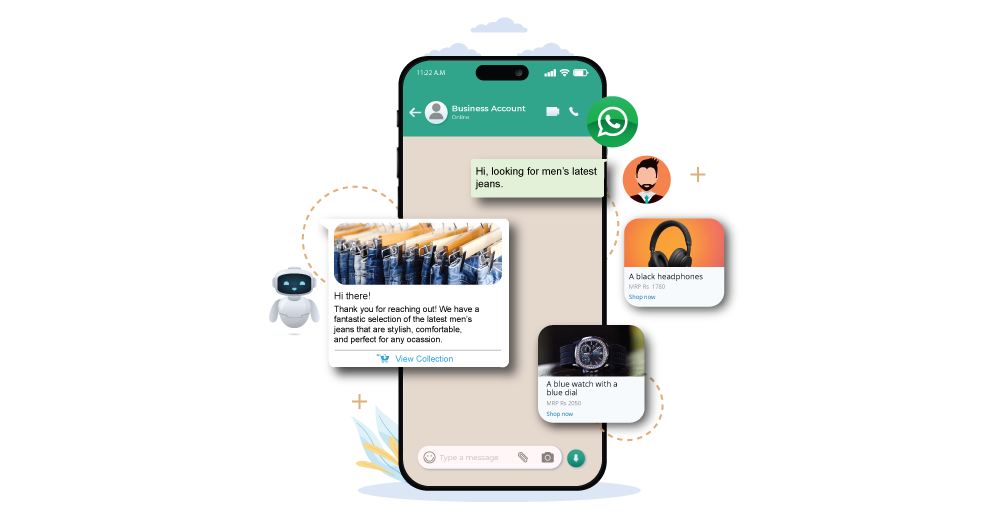



Consider the last time you had a straightforward query for a business. Did you prefer waiting on hold or receiving a fast response by text? For millions of consumers, WhatsApp is their preferred communication channel. WhatsApp Automation enables organizations to utilize this desire on a large scale. It is not intended to replace human connection, but rather to supplement it so that clients receive the correct information at the right moment, quickly. Let's get into the how and why, with specific advantages and actionable steps.
WhatsApp Automation is the use of automated systems, software, or chatbots to manage various interactions and processes on the WhatsApp Business Platform without requiring direct human contact. Basically, it lets businesses set up automatic replies, send proactive messages, handle consumer questions, and even help with transactions using WhatsApp, 24/7.
Automation makes communication quick, reliable, and scalable, so a human agent doesn't have to type out every single response. This can include anything from simple automated greetings and frequently asked questions to more complicated processes like confirming orders, reminding people of appointments, qualifying leads, and sending targeted marketing messages. It uses WhatsApp's large user base to make things run more smoothly, improve the customer experience, and give human agents more time to deal with more complicated issues.
WhatsApp Automation is more than just a convenience—it’s a powerful tool that can transform how you interact with customers and manage operations. Here are the key benefits it brings to your business:
1. 24/7 Customer Support & Instant ResponsesCustomers expect immediate answers, even outside business hours. WhatsApp Automation ensures that no query goes unanswered, whether it’s 2 PM or 2 AM. Automated greetings, quick replies, and AI-powered chatbots can handle common questions instantly, improving satisfaction and reducing wait times.
2. Improved Operational EfficiencyBy automating repetitive tasks like answering FAQs, sending order updates, or collecting feedback, your team can focus on more complex and high-value activities. This reduces manual workload, minimizes errors, and optimizes resource allocation.
3. Enhanced Customer EngagementWith automation, you can send timely, personalized messages such as appointment reminders, promotional offers, or transactional alerts. This proactive approach keeps your brand top-of-mind and fosters stronger customer relationships.
4. Scalability Without Extra CostsAs your business grows, so does the volume of customer interactions. WhatsApp Automation allows you to handle thousands of conversations simultaneously without needing to hire additional support staff, making it a cost-effective solution for scaling operations.
5. Consistent & Error-Free CommunicationAutomation ensures that every customer receives the same accurate information every time. Predefined templates and workflows eliminate the risk of human error and maintain brand voice consistency across all interactions.
6. Higher Conversion RatesAutomated chatbots can qualify leads, recommend products, and guide users through the sales funnel—even after hours. By engaging potential customers instantly, you reduce drop-offs and increase the likelihood of conversion.
7. Seamless Transactional UpdatesKeep customers informed at every step with automated order confirmations, shipping notifications, payment receipts, and delivery statuses. This builds trust and reduces the number of “Where is my order?” queries.
8. Rich Media SupportWhatsApp Automation isn’t limited to text. You can send images, videos, PDFs, or catalogs to showcase products, share tutorials, or deliver digital receipts—making interactions more engaging and informative.
9. Easy Integration with Business ToolsMost WhatsApp Automation platforms integrate seamlessly with CRM, ERP, e-commerce, and analytics tools. This enables centralized data management, personalized messaging, and actionable insights into customer behavior.
10. Cost-Effective Marketing & SupportCompared to traditional Bulk SMS or call-based support, WhatsApp offers a more convenient way to reach a global audience. Automated campaigns reduce overhead costs while maximizing reach and engagement.
WhatsApp Automation isn't just a tool—it's a versatile solution that can be applied across various industries to solve real business challenges. Here are some of the most effective use cases:
1. Customer Support & Engagement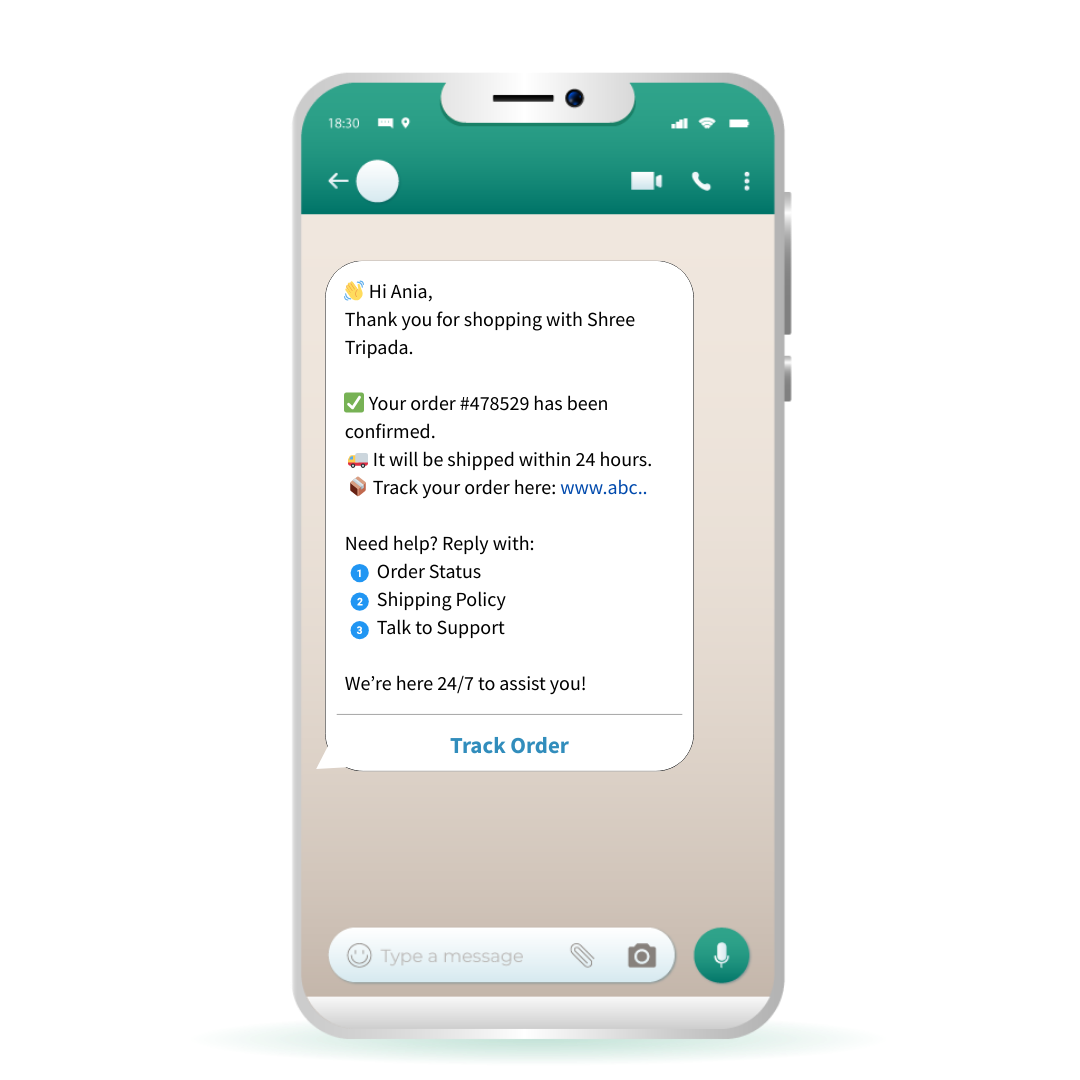 2. Sales & Lead Generation
2. Sales & Lead Generation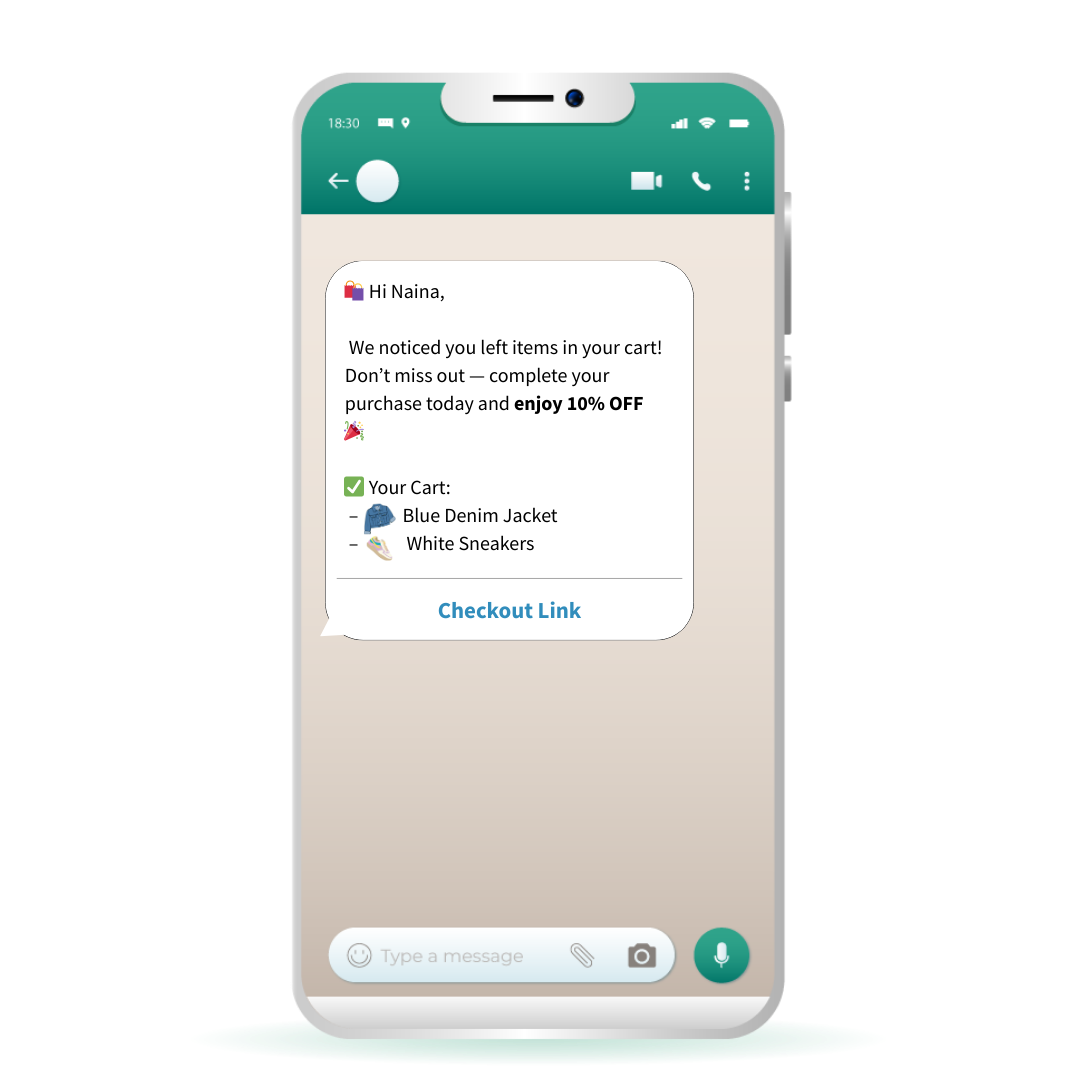 3. Marketing & Promotions
3. Marketing & Promotions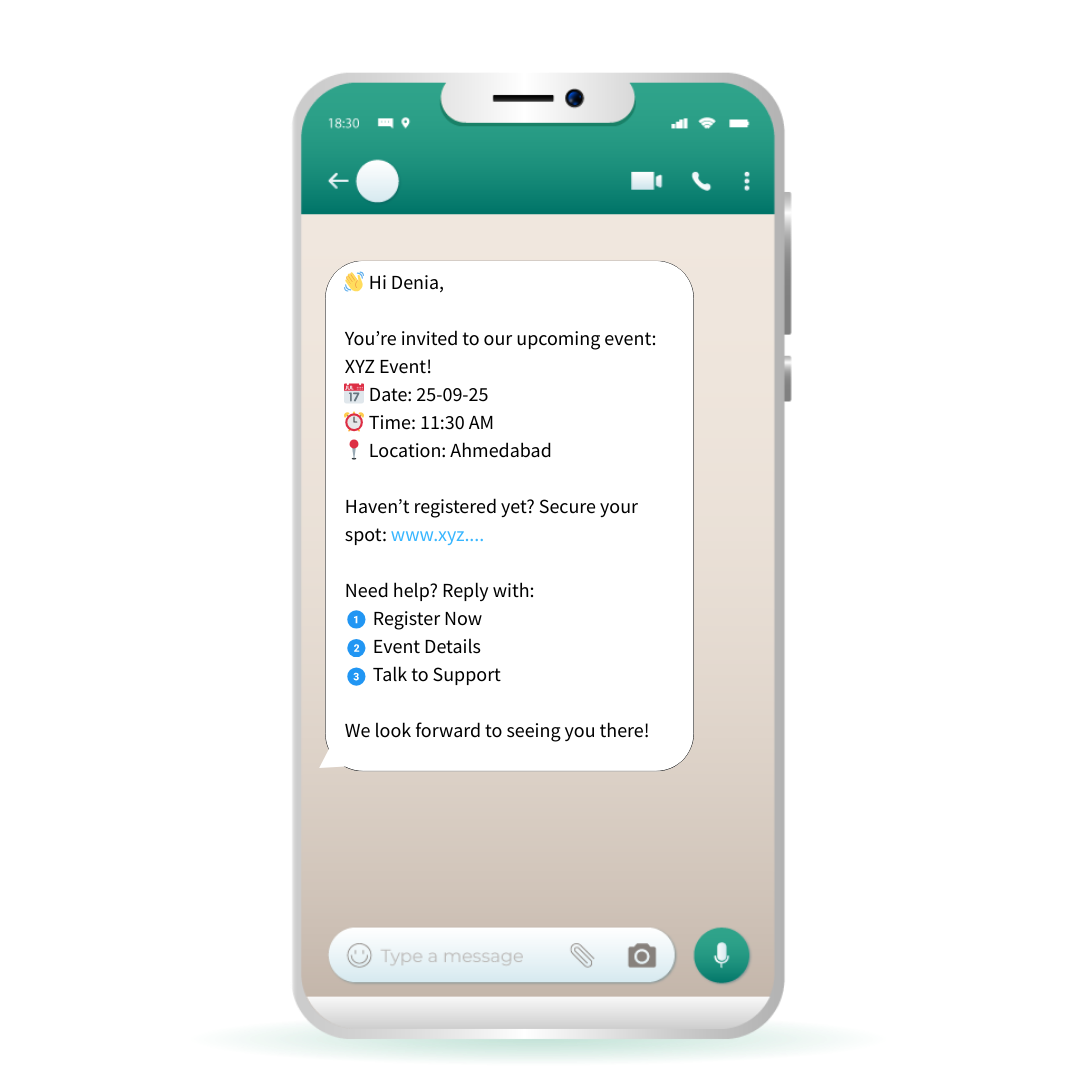 4. Transactions & Notifications
4. Transactions & Notifications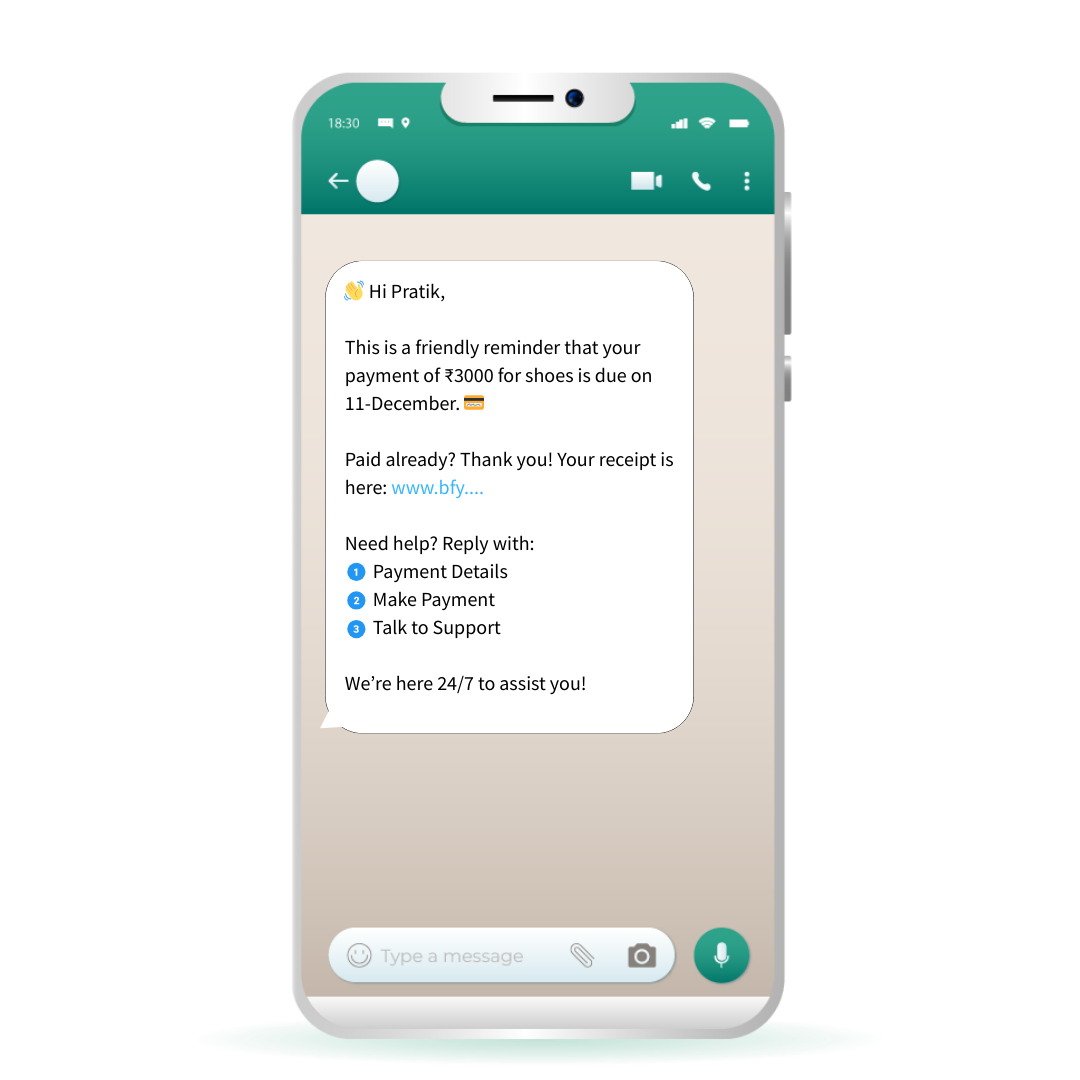 5. Internal Operations
5. Internal Operations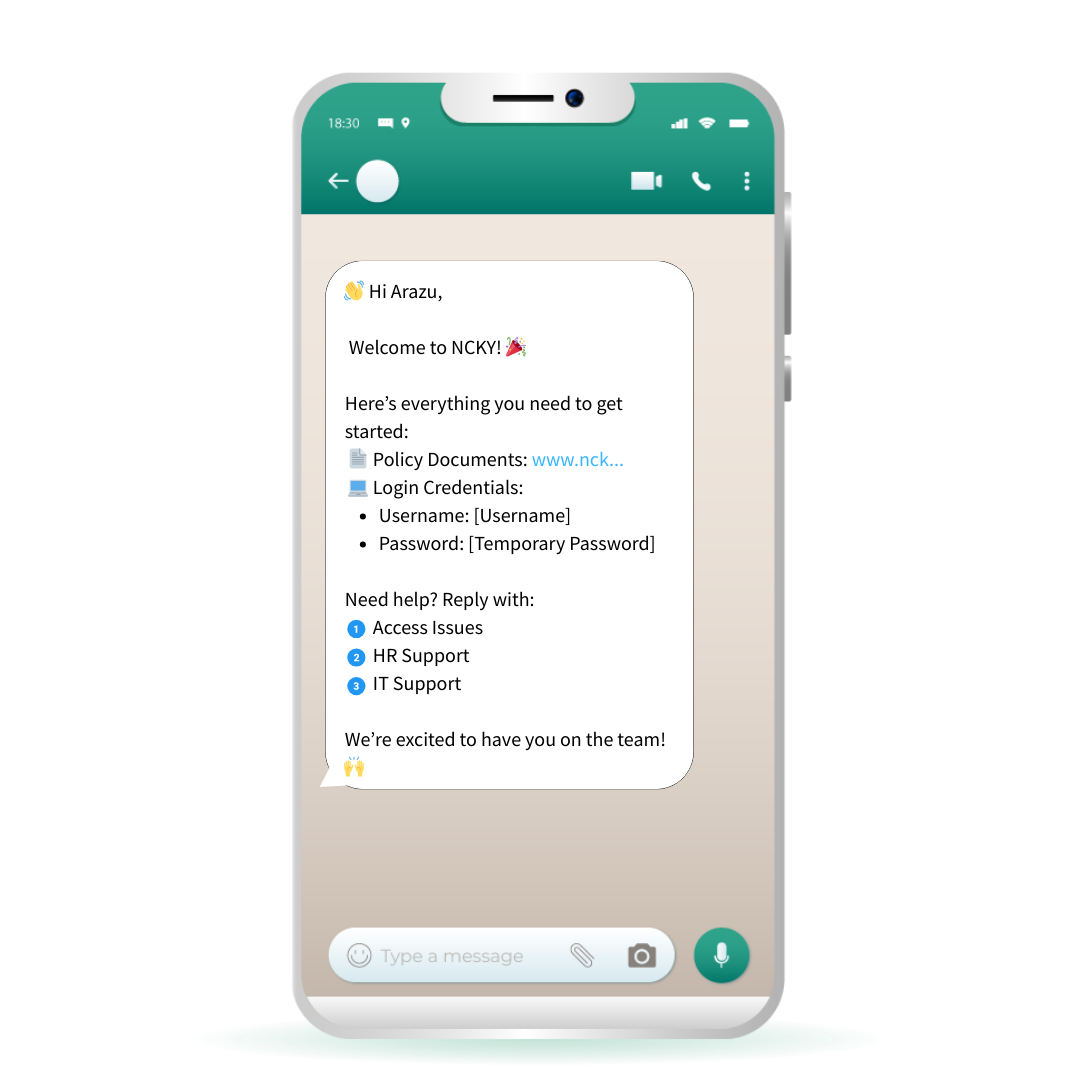
Start by asking these key questions:
When it comes to WhatsApp automation, not all providers deliver the same level of quality and security. Choosing an official WhatsApp Business Solution Provider (BSP) ensures that your business benefits from reliable, compliant, and future-ready communication. Here’s why it matters:
Compliance with WhatsApp PoliciesOfficial BSPs follow WhatsApp’s strict guidelines, ensuring your account isn’t blocked or flagged for misuse. This protects your business reputation and keeps your campaigns running smoothly.
High Delivery Rates with Verified NumbersWith direct operator connectivity and verified business numbers (Blue tick), BSPs guarantee faster and more reliable message delivery compared to unverified platforms.
Secure Infrastructure with End-to-End EncryptionCustomer trust depends on data security. BSPs provide enterprise-grade infrastructure and end-to-end encryption, keeping your customer conversations private and secure.
Expert Support for Setup, DLT & IntegrationsSetting up WhatsApp automation requires approvals, DLT registration (in India), and technical integrations. Official BSPs provide hands-on support to make onboarding quick and hassle-free.
Advanced Features & Automation ToolsFrom chatbots and interactive buttons to APIs that connect with CRMs or ERPs, BSPs unlock the full potential of WhatsApp Business beyond simple messaging.
WhatsApp Automation is no longer a “nice-to-have” but a must-have tool for modern businesses. From instant customer support to automated marketing campaigns, it allows you to scale communication, save costs, and deliver exceptional experiences.
If you’re ready to automate, partner with Shree Tripada – an official WhatsApp Business API provider with 15+ years of expertise in CPaaS solutions.
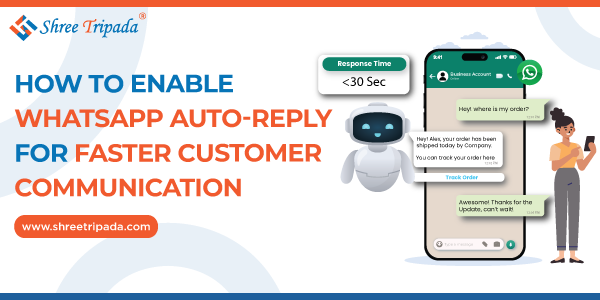
In today’s fast-paced digital world, people seek instant answers. Whether it's a question, support request or product query...
Learn more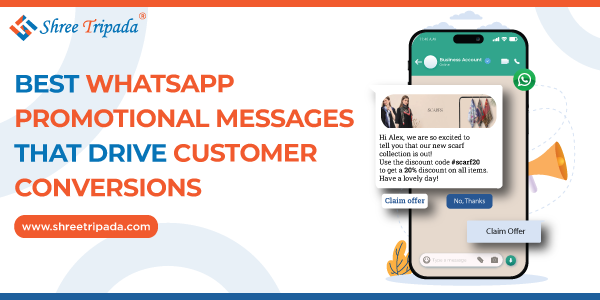
WhatsApp is now one of the most powerful tools for businesses to talk to their customers in real time...
Learn more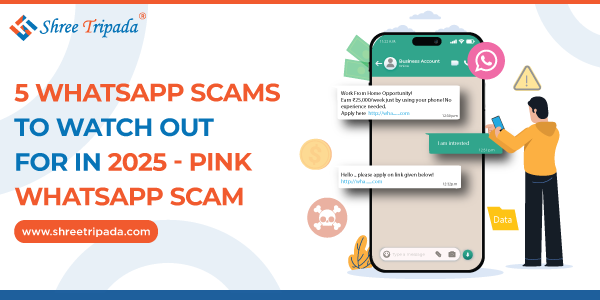
Millions of people use WhatsApp every day to stay connected, but not all messages are safe. In 2025...
Learn more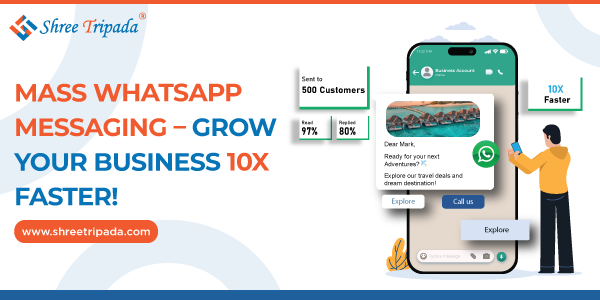
Have you ever wished you could send one message to many people at once — without typing it over and over...
Learn more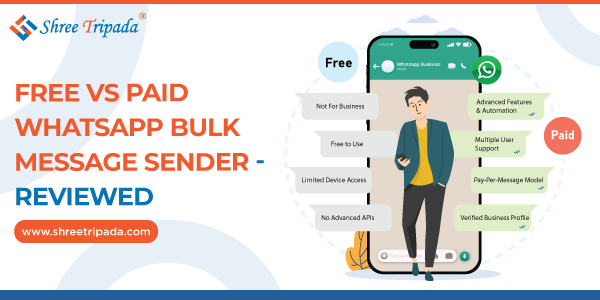
Some people use free tools to send messages on WhatsApp, and some use paid ones. Free sounds good...
Learn more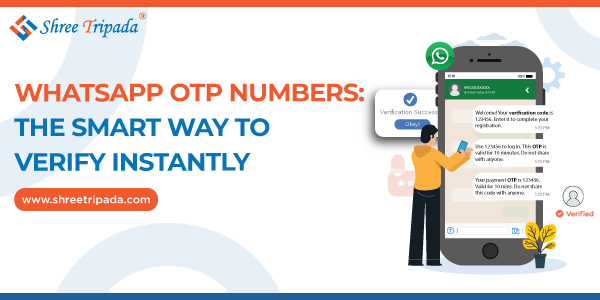
You are signing up for a fun app or buying a toy online. Instead of waiting a long time for a message...
Learn moreImportant Links
Shree Tripada Infomedia India Private Limited
Corporate Head Office:
706 , 7th Floor , North Plaza, Nr 4D Square mall, Beside PVR, Opp Palladium
Nr.Visat Circle ,Motera, Sabarmati, Ahmedabad, Gujarat 380005